May 3, 2024 | 18:46 GMT +7
May 3, 2024 | 18:46 GMT +7
Hotline: 0913.378.918
May 3, 2024 | 18:46 GMT +7
Hotline: 0913.378.918
Sustainable development of the shrimp industry based on the application of scientific and technical advances, especially the use of biological products, is an inevitable direction to increase value and profit for the shrimp breeders.
Nguyen Thi Hang, General Director of Bo De Seafood Joint Stock Company said currently, local breeders still raise shrimps in the traditional way, they often use lime, chemicals and antibiotics to treat the shrimp’s pond in many provinces of the Mekong Delta.
However, if they used improperly, it will accidentally create chemical and organic poisoning, she said.
Besides, the phenomenon of salinity has become more and more complicated in many provinces, including Ca Mau, Bac Lieu, Kien Giang.
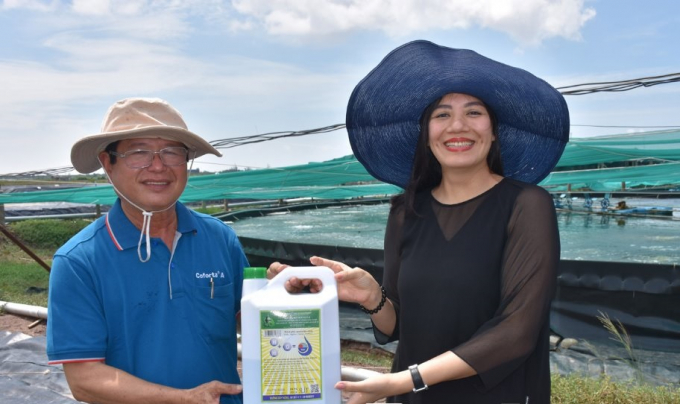
Nguyen Thi Hang, General Director of Bo De Seafood Joint Stock Company, brings Mother Water biological product to shrimp farmers in the Mekong Delta. Photo: TL.
It affects to the soil, limiting natural food sources of shrimp and resulting in low productivity, she said.
The company has started to invest in research in aquaculture in the delta since 2018, she added.
The company's point of view is that the improvement of water source and pond’s land is very important to raise shrimp effectively, she said.
On that basis, the company focuses on developing technology to solve problems in the shrimp farming process, she said.
It mainly concentrates on developing biotechnology with a breakthrough in operating principles towards balancing the pH, creating oxygen at the pond bottom, she said.
When the pond is rich in oxygen, beneficial microorganisms for shrimps will grow, helping the shrimps stay healthy and increasing the productivity, she said.
Then, the biological product named Mother Water was made, she said.
The product will help balance the pH, creating more oxygen at the bottom of the shrimp pond, so, the anaerobic environment will be suppressed or inhibited, she said.
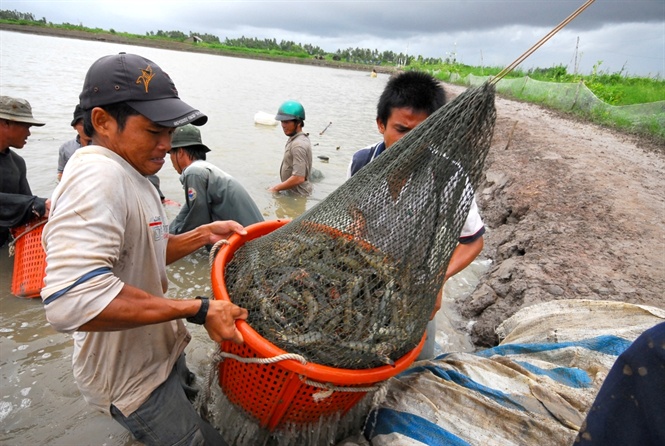
Biological products contribute to the sustainable shrimp farming and environmental protection. Photo: NNVN.
As a result, shrimps have a good living environment, increasing resistance, she said.
Additionally, the natural food source for shrimps will be increased, she said.
Hang also said the winter’s temperature in the north region is very cold, sometimes it is only 7 to 10 degrees Celsius, therefore, when the product increases oxygen in the water, balancing the pH, the water temperature will be warmer.
Moreover, when adding the product to the shrimp feed, it will help shrimps in digesting well and make the shrimps grow well in the winter season, she said.
The biotechnological, named “Break all soil and water” of the product, will break the electronic bonds of soil and water. Thanks to that, many shrimp ponds do not need to be covered with canvas but still successfully raise the shrimps in the winter, she said.
Hang said, in addition to providing biological products for shrimp breeders, the company has also implemented many programmes to support local breeders to gradually raise their awareness and improve their techniques to ensure no risks during shrimp farming.
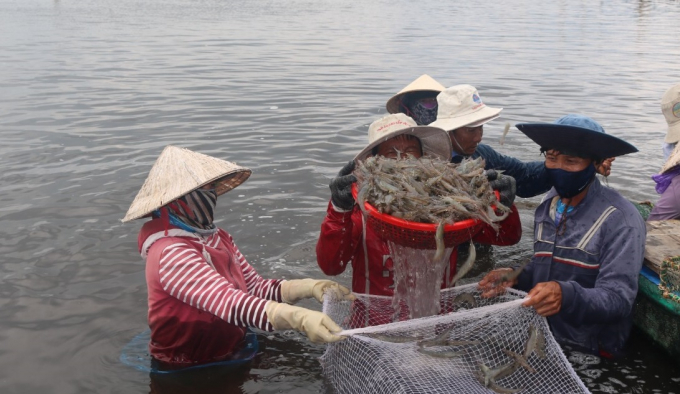
Intensive shrimp farming has caused consequences for the environment, requiring a biological approach. Photo: NNVN.
It can be named the project "Professionalisation of farmers" and the project "The idea of aspiration to build fragrant rice and clean shrimp areas" as the moves of the company to participate in the country’s strategy of building organic agriculture.
Under the project "Professionalisation of farmers", the company has co-operated with the National Agricultural Extension Centre, the People's Committee, the Agriculture and Rural Development Department of five provinces in the delta to directly instruct the local farmers.
The project has been operated since 2018 in Bac Lieu Province. Initially, the implementation encountered many difficulties. Therefore, the company has to come up with a policy to support farmers in all stages of production.
Even, the company signed a commitment with farmers participating in the project, if there is a risk, the company will write off all debts. Thanks to that effort, the project has been successful run and multiplied to neighbouring provinces of Soc Trang, Ca Mau and Kien Giang.
However, when the scope of the project was expanded, the company could not do it alone, then it co-ordinated with the National Agricultural Extension Centre and localities to run the project by introducing shrimp seed companies to join with local farmers.
Currently, Viet Nam has signed many international trade agreements, requiring products for export to meet very high requirements and criteria.
Therefore, with the principle that farmers are the core and most important in the supply chain linkage, the project will help them change their mindset, mastering their fields and participating in the market economy.
Translated by Thu Hang
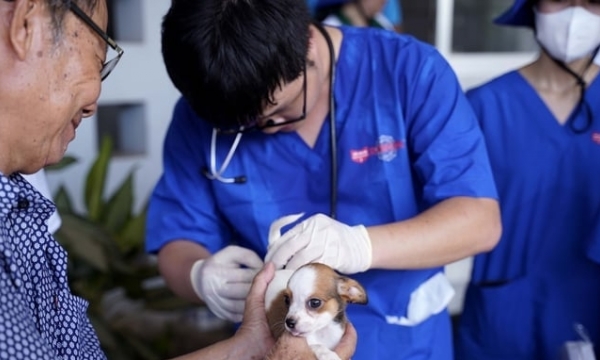
(VAN) Pet owners in Long An province exhibit indifference and a lack of understanding regarding rabies. They maintain the misconception that pet dogs and cats are immune to the disease.
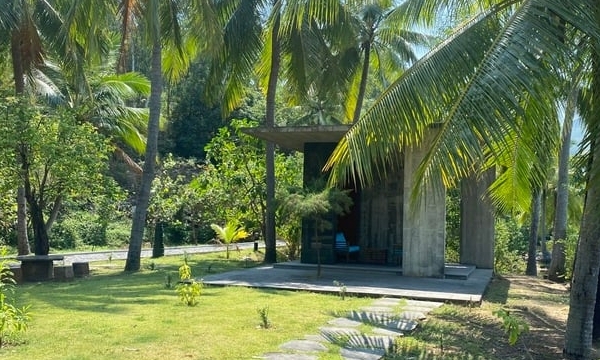
(VAN) The STAR-FARM project is funded by the European Union and implemented in the provinces of Dong Thap, Kien Giang and Tra Vinh, with a total investment of 4.2 million Euro.
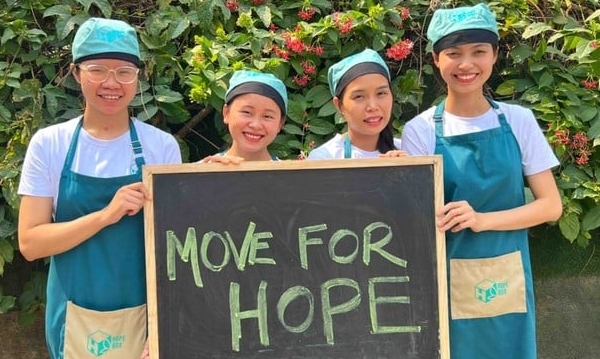
(VAN) The ecosystem and social impact business organizations (SIBs), although still modest in number, is very diverse and dynamic, they have been creating positive changes in many aspects, contributing to building a sustainable future
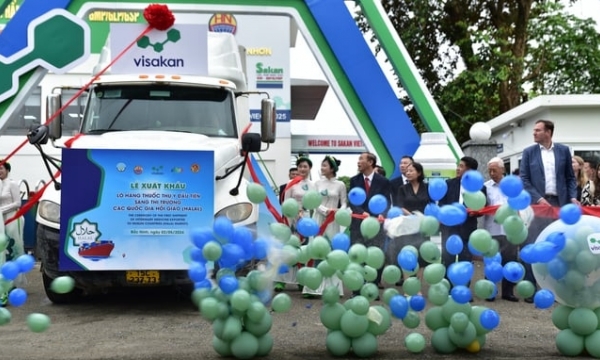
(VAN) Visakan Biotechnology Development Investment Company, a subsidiary of Hung Nhon Group, recently held a ceremony to commemorate its first export shipment of veterinary medicine to the Halal market.
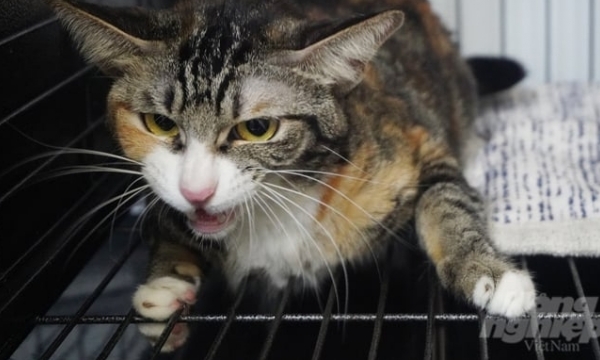
(VAN) If temporary regulations on dog and cat ownership are approved, Ho Chi Minh city will pilot the implementation of microchipping for dogs and cats in several designated areas within the inner city.
/2024/05/02/5303-5730-6-185654_281.jpg)
(VAN) Dr. Pham S, Vice Chairman of Lam Dong Provincial People's Committee: 'Lam Dong has attracted 80 FDI enterprises and 1,550 domestic enterprises to invest in agricultural development, with 150 agricultural cooperatives applying high technology'.
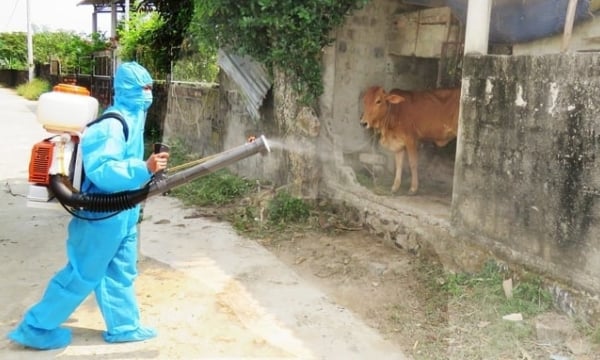
(VAN) An outbreak of Lumpy Skin Disease has occured across four districts in Quang Binh province, prompting local veterinary forces to strengthen prevention efforts.